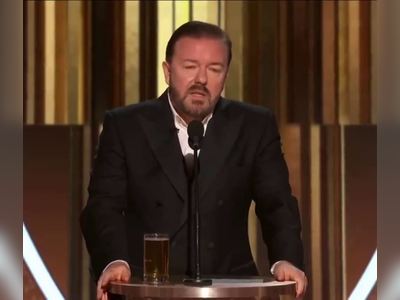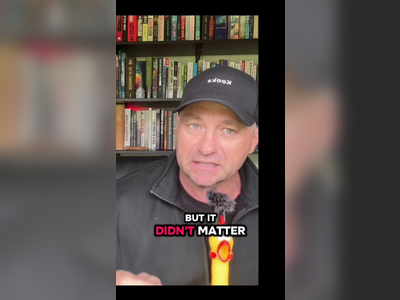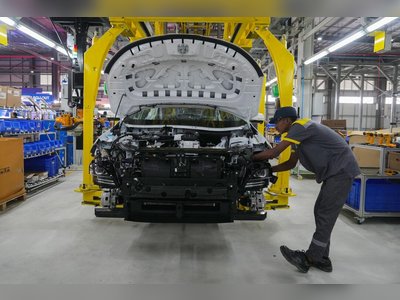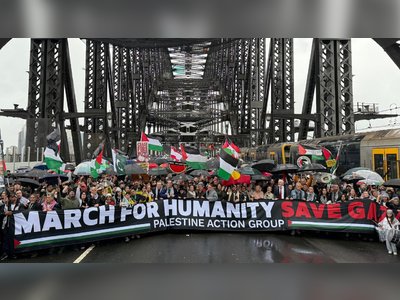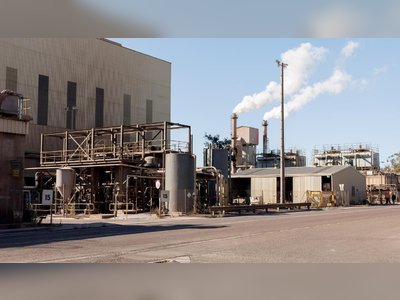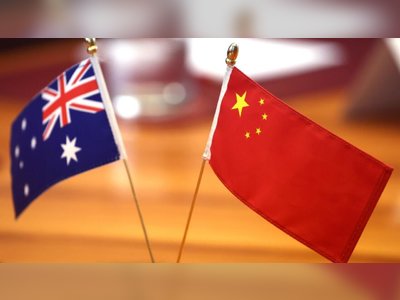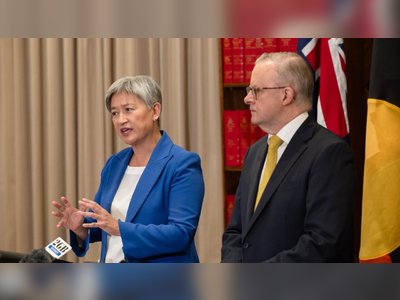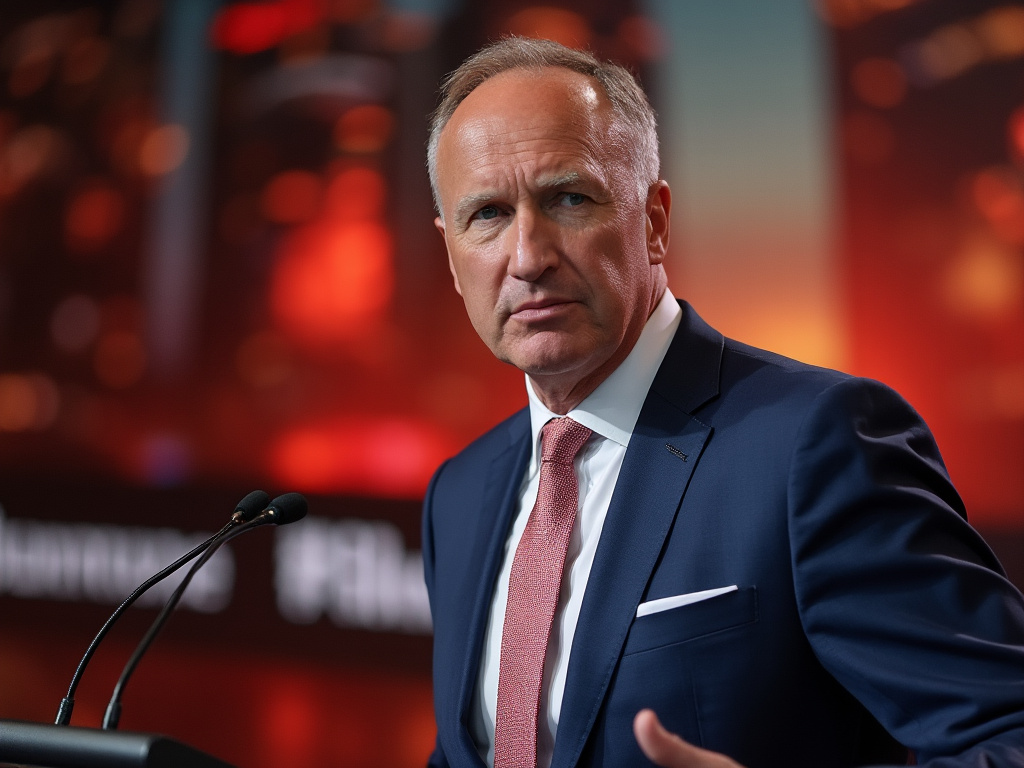
Peter Dutton's Family Emergency Overshadows First Leaders' Debate in Australia
Opposition Leader Peter Dutton faces difficult circumstances as healthcare dominates discourse during televised debate.
During the first leaders' debate of the Australian election campaign in western Sydney, Opposition Leader Peter Dutton accused Prime Minister Anthony Albanese of engaging in political theatrics by frequently displaying his Medicare card.
This occurred amid rising tensions over the Labor Party's healthcare policies, with Dutton promising no cuts to the healthcare system.
The debate was notably affected by a family emergency as Dutton's father, Bruce, was hospitalized in Queensland after suffering a heart attack; he is reported to be in stable condition.
The news of Dutton's father's medical situation broke just minutes before the debate, which was conducted in front of approximately 100 undecided voters and broadcast by Sky News.
With the election closely contested and recent polls showing a slim lead for Labor, suburban votes in both Sydney and Melbourne are increasingly important as election day approaches on May 3.
Despite the circumstances, Dutton proceeded to participate in the debate.
The debate included sharp exchanges regarding government spending and healthcare policies.
Dutton highlighted the government's increasing debt, which he claimed reached $1.2 trillion, stating, "This is the highest-spending government in 40 years." In response, Albanese countered by referencing a budgetary context, arguing that spending levels were a consequence of the COVID-19 pandemic response during Dutton's time in government.
The record for government spending as a percentage of GDP was set in the fiscal year 2020-21 due to extensive measures taken to support the economy during the pandemic.
Dutton's statement came against a backdrop where the government plans and spending have come under scrutiny during the campaign.
A significant focus of the debate was on healthcare, with Albanese accusing Dutton of proposing "mystery cuts" to health services.
Dutton rebutted these claims by asserting that the costs for general practitioner services have increased since Labor assumed power, pointing out that patients are now facing average gap fees exceeding $40.
Albanese defended his government’s initiatives, referencing an $8.5 billion promise to extend bulk-billing bonuses to all adult patients and the establishment of 87 urgent healthcare clinics offering free services across Australia.
He noted the importance of these clinics for urgent but non-life-threatening medical situations.
Dutton reacted critically, suggesting that bulk-billing rates have declined under the current government.
The issue of bulk-billing emerged as a central theme, with Dutton arguing that access to low-cost healthcare has deteriorated.
The decline in bulk-billing rates, which began after 2021, reached a low point as various factors, including a freeze on Medicare rebates, escalated costs for patients while government funding failed to keep pace.
Albanese redirected the conversation to Dutton's record when he served as health minister, accusing him of previously attempting to impose fees for doctor visits and emergency department access, and for freezing the Medicare rebate for six years.
In a rare exposition of his past decisions, Dutton clarified his goals during his tenure, stating he wanted a robust general practice system to benefit all Australians.
He concluded the debate by affirming that the Coalition would not implement cuts to health services.
However, Albanese quickly emphasized the inconsistency of such promises based on the Coalition's previous actions.
The audience feedback indicated a slight preference for Albanese, with 44 attendees favoring the Prime Minister, while 35 supported Dutton, and 21 remained undecided.
This occurred amid rising tensions over the Labor Party's healthcare policies, with Dutton promising no cuts to the healthcare system.
The debate was notably affected by a family emergency as Dutton's father, Bruce, was hospitalized in Queensland after suffering a heart attack; he is reported to be in stable condition.
The news of Dutton's father's medical situation broke just minutes before the debate, which was conducted in front of approximately 100 undecided voters and broadcast by Sky News.
With the election closely contested and recent polls showing a slim lead for Labor, suburban votes in both Sydney and Melbourne are increasingly important as election day approaches on May 3.
Despite the circumstances, Dutton proceeded to participate in the debate.
The debate included sharp exchanges regarding government spending and healthcare policies.
Dutton highlighted the government's increasing debt, which he claimed reached $1.2 trillion, stating, "This is the highest-spending government in 40 years." In response, Albanese countered by referencing a budgetary context, arguing that spending levels were a consequence of the COVID-19 pandemic response during Dutton's time in government.
The record for government spending as a percentage of GDP was set in the fiscal year 2020-21 due to extensive measures taken to support the economy during the pandemic.
Dutton's statement came against a backdrop where the government plans and spending have come under scrutiny during the campaign.
A significant focus of the debate was on healthcare, with Albanese accusing Dutton of proposing "mystery cuts" to health services.
Dutton rebutted these claims by asserting that the costs for general practitioner services have increased since Labor assumed power, pointing out that patients are now facing average gap fees exceeding $40.
Albanese defended his government’s initiatives, referencing an $8.5 billion promise to extend bulk-billing bonuses to all adult patients and the establishment of 87 urgent healthcare clinics offering free services across Australia.
He noted the importance of these clinics for urgent but non-life-threatening medical situations.
Dutton reacted critically, suggesting that bulk-billing rates have declined under the current government.
The issue of bulk-billing emerged as a central theme, with Dutton arguing that access to low-cost healthcare has deteriorated.
The decline in bulk-billing rates, which began after 2021, reached a low point as various factors, including a freeze on Medicare rebates, escalated costs for patients while government funding failed to keep pace.
Albanese redirected the conversation to Dutton's record when he served as health minister, accusing him of previously attempting to impose fees for doctor visits and emergency department access, and for freezing the Medicare rebate for six years.
In a rare exposition of his past decisions, Dutton clarified his goals during his tenure, stating he wanted a robust general practice system to benefit all Australians.
He concluded the debate by affirming that the Coalition would not implement cuts to health services.
However, Albanese quickly emphasized the inconsistency of such promises based on the Coalition's previous actions.
The audience feedback indicated a slight preference for Albanese, with 44 attendees favoring the Prime Minister, while 35 supported Dutton, and 21 remained undecided.
AI Disclaimer: An advanced artificial intelligence (AI) system generated the content of this page on its own. This innovative technology conducts extensive research from a variety of reliable sources, performs rigorous fact-checking and verification, cleans up and balances biased or manipulated content, and presents a minimal factual summary that is just enough yet essential for you to function as an informed and educated citizen. Please keep in mind, however, that this system is an evolving technology, and as a result, the article may contain accidental inaccuracies or errors. We urge you to help us improve our site by reporting any inaccuracies you find using the "Contact Us" link at the bottom of this page. Your helpful feedback helps us improve our system and deliver more precise content. When you find an article of interest here, please look for the full and extensive coverage of this topic in traditional news sources, as they are written by professional journalists that we try to support, not replace. We appreciate your understanding and assistance.




